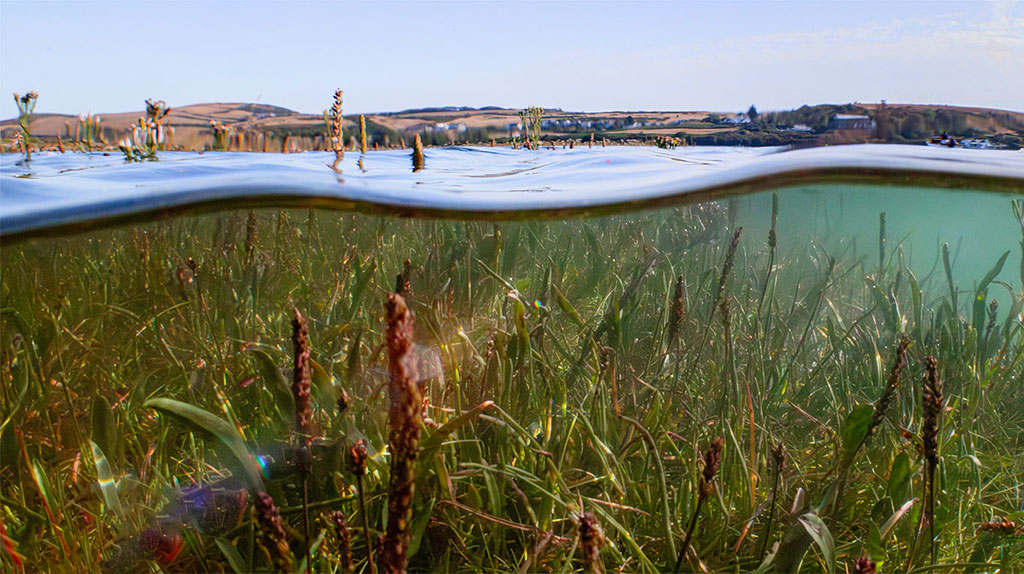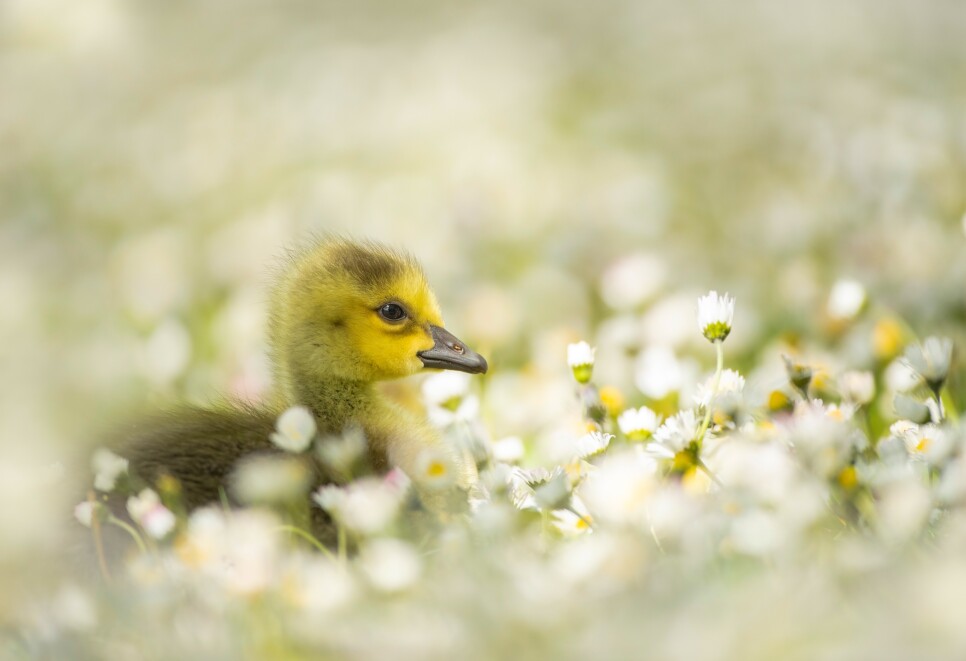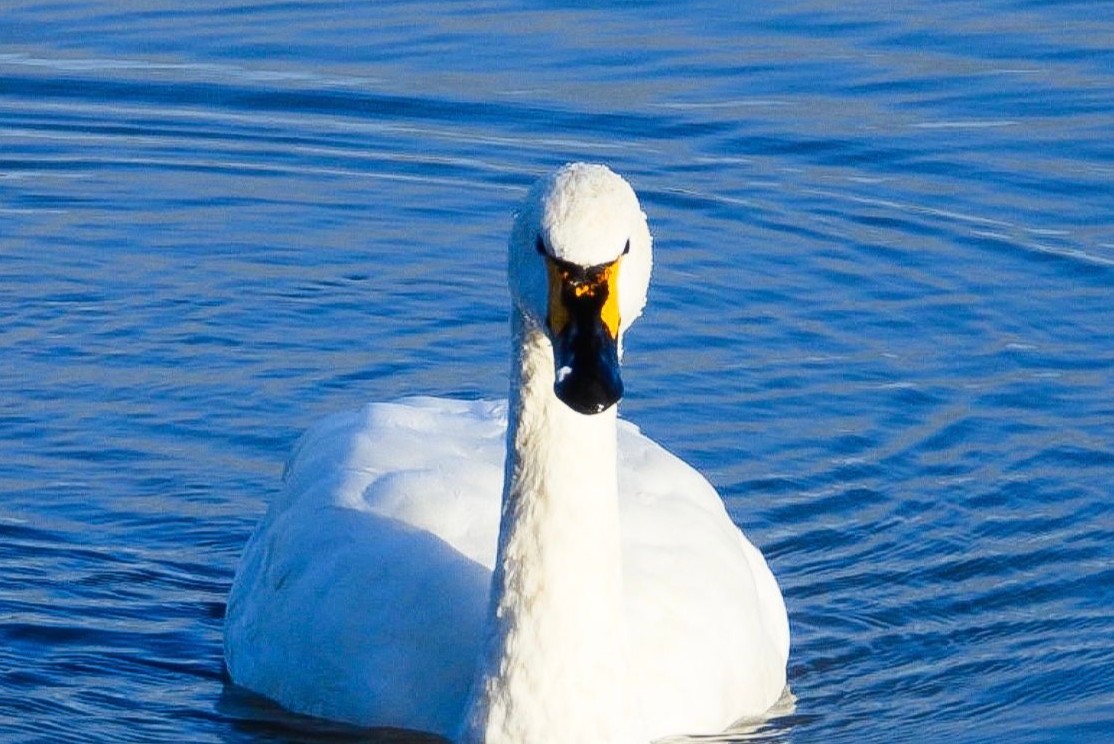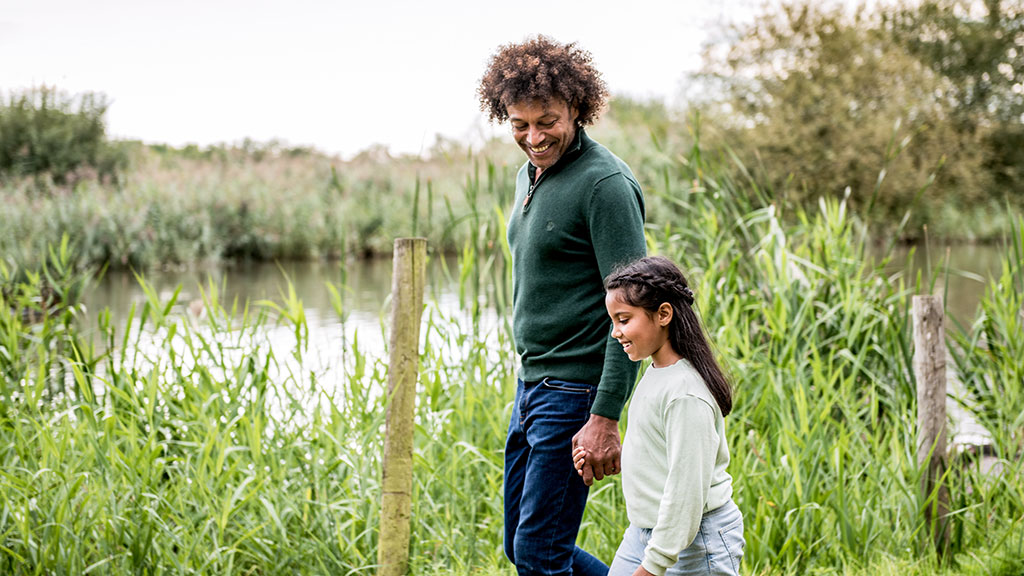Farmers help save critically endangered curlews in Severn and Avon Vale meadows
Farmers have joined forces with conservationists from the Wildfowl & Wetlands Trust (WWT), the Farming and Wildlife Advisory Group South West (FWAG) and the Floodplain Meadows Partnership in the floodplain meadows of the Severn and Avon Vale to help save the curlew - one of the UK’s rarest wading birds - as part of the new Flourishing Floodplains project running from 2022-2023.
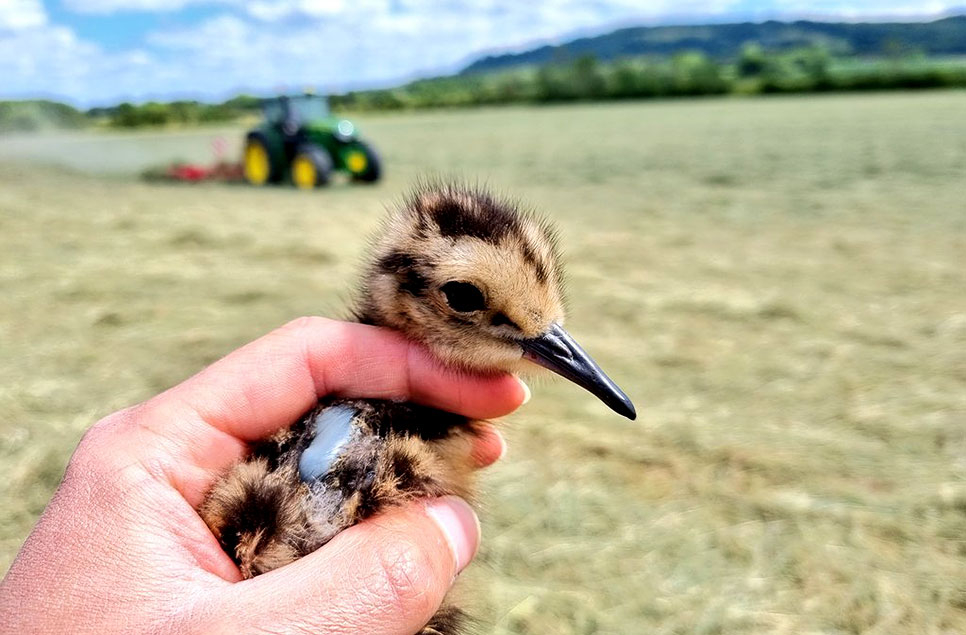
Once a common sight and sound in the British countryside, curlews have become an increasingly rare part of our rural life thanks to changes in their lowland habitats, such as loss of species-rich floodplain meadows, and an abundance of predators. The UK holds a quarter of the world’s population but in our changing landscapes they are increasingly unable to rear chicks so their population is rapidly declining – the number of breeding birds has dropped by about 65% since 1970.
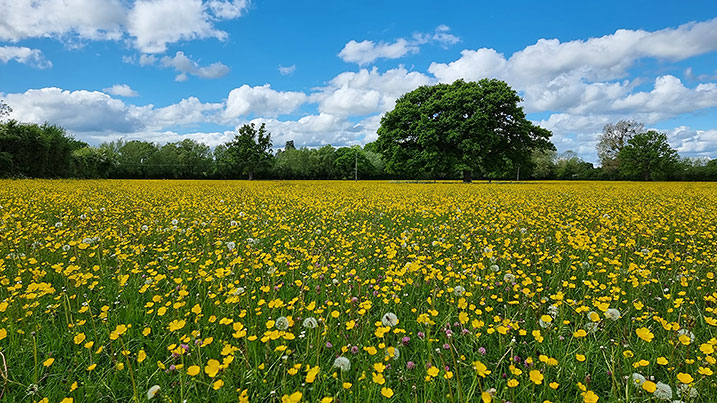
With fears that the species won’t survive without intervention, the Flourishing Floodplain project in the Severn and Avon Vale is seen as vitally important to inform curlew protection work right across the country. This year, researchers have found 18 nests – an improvement on previous years when numbers have been much lower.
The nests have been found with the help of local farmers, who alert the project team when they find eggs in their fields – and also change when they mow to avoid damaging eggs or newly hatched chicks. Their roles as “guardians of the curlews” are seen as vitally important to help protect these fast-declining waders.
As well as the direct curlew conservation work, an important part of the Flourishing Floodplains project is to understand the link between the extent of species rich floodplain meadows in the Vale and curlew nesting sites. Floodplain meadows are rare and only 1100 ha remain in the UK. The Severn Vale may contain more than 10% of the national resource, but restoring the species-rich meadows is seen as essential to help the curlews who rely on the habitat to survive.
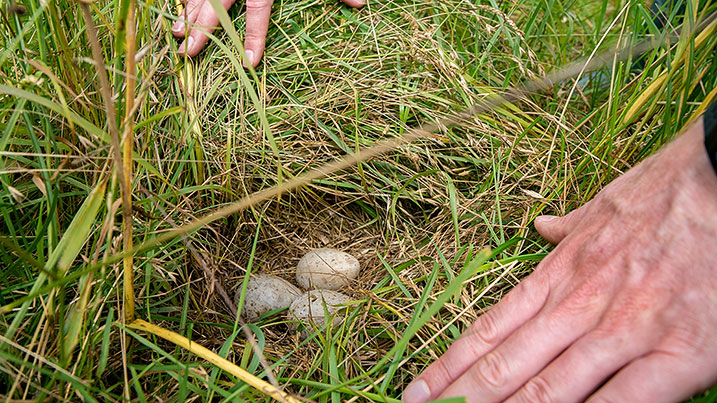
“There is urgent work happening all across the UK to find out why curlews are doing so badly but this project could be called the “crème-de-la-crème” of curlew research work in the country thanks to the amount of resources we have put into it,” explained WWT Senior Research Officer Kane Brides.
“The work includes catching the birds and ringing them so we can see where they go in the winter, whether they return to the same area to nest, and then exactly where their nests are – so we can then monitor the eggs and chicks to try and understand better why so many of them aren’t surviving until they are old enough to fly.
“The information we collect will then help inform efforts all over the country to save curlews – there’s a huge number of people right across the UK desperately trying to save these special birds so I hope the work we’re doing here in Gloucestershire and Worcestershire will make a really important contribution to those efforts.
“But we couldn’t do it without the help of the local farmers - the involvement of the farming community is an essential feature of the curlews’ success.”
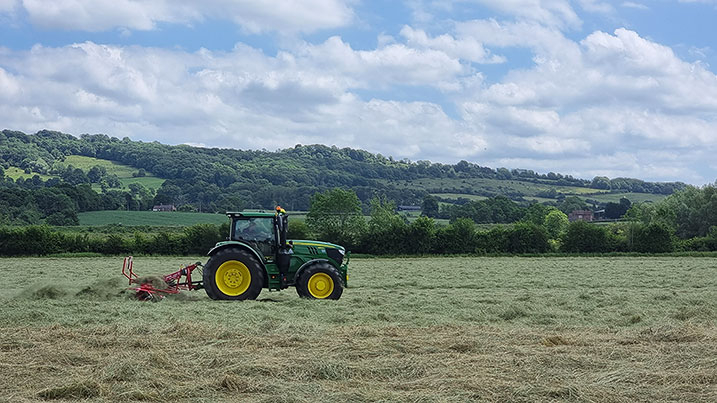
Local farmer Dave Banwell, who farms in Hasfield, Gloucestershire said he was happy to do what he could. “Curlews are having such a hard time, and have been for so long, anything we can do to help them we will”.
Floodplain Meadows Partnership manager Emma Rothero said: “The Flourishing Floodplains project is hoping to define the extent and diversity of the floodplain meadows in the Vale. Data collected will help clarify exactly how much existing species rich floodplain meadow remains in the Vale and may well add significantly to the national inventory for this rare habitat. FWAG, are working with farmers to deliver floodplain meadow restoration in the Vale this year and we are also looking for further restoration opportunities as part of the project legacy.”
Sarah Wells, FWAG Southwest’s Senior Farm Environment Advisor, said: “FWAG SouthWest are delighted that farmers are part of the team conserving curlews in the Severn and Avon vales and that their critical efforts are being recognised.
“FWAG SouthWest has facilitated the 'Severn Vale Guardians' cluster group involving many of these farmers over the last four years, and going forward will be helping land managers to understand ‘Natural Capital’ on their farms and how this fits with the evolving Environmental Land Management (ELM) Schemes.”
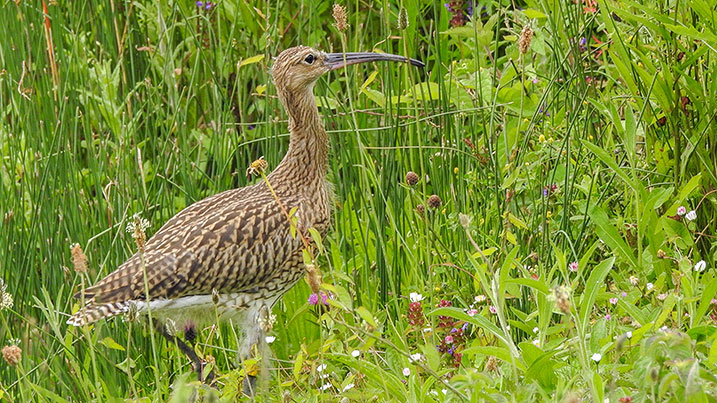
Flourishing Floodplains aims to restore threatened wetland habitats in the farmed landscape of the Severn and Avon Vale which will help to increase biodiversity, store carbon, improve soil and water quality and connect people to nature. Evidence gathered will be fed into ongoing consultations about new farm support schemes, and Local Nature Recovery Strategies to ensure these rare habitats and associated species, are protected and boosted in the long term. Partners in the project include Farming & Wildlife Advisory Group South West (FWAG-SW) and the Floodplain Meadows Partnership led by the Open University (FMP-OU) and it is funded by the Government's Green Recovery Challenge Fund.
